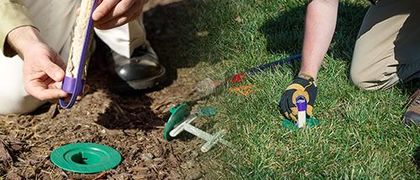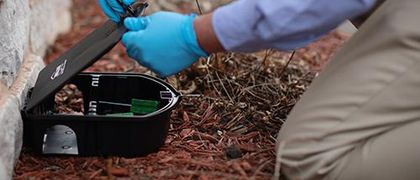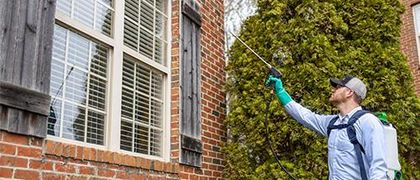Why Ants Keep Coming Back in Your Missouri Kitchen
If you’re dealing with a recurring ant problem in your Missouri home, you’re not alone. Whether it’s in Kansas City, Des Moines, or right here in rural Missouri, ants in the kitchen are a common issue, especially when the weather warms up.
These small pests return repeatedly when they find food or moisture. Even worse, using the wrong DIY methods might exacerbate your ant infestation.
This article explains why ants are drawn to your kitchen, the types of ants commonly found in Missouri homes, and how to achieve lasting relief through effective prevention and professional pest control.
Key Takeaways
- Scent trails left by ants guide the colony straight to your kitchen again and again.
- Entry points, such as baseboards, cracks, and utility gaps, allow easy access for ant colonies.
- Missouri kitchens attract several species of ants, each with unique nesting habits.
- Professional ant control addresses the full infestation, not just the ants you see.
Why Ants Keep Coming Back
If you’ve already sprayed or set out bait but still see ant trails, there’s often a deeper cause.
They Follow Scent Trails
When worker ants find food, they lay down a scent trail, basically a roadmap for the rest of the colony. Even after you kill the visible ants, that trail remains; unless it’s cleaned and treated correctly, more ants will follow.
Entry Points Around the Home
Baseboards, windows, doors, crawlspaces, and even plumbing lines provide easy access. If you live in an older home or have shifting soil (as is common in Missouri), new cracks form over time. And ants only need the tiniest opening.
Accessible Food and Water Sources
From crumbs under appliances to standing water near the sink, even the cleanest kitchens can attract ants. They don’t need much, sugary spills, pet food, or open trash are enough to keep them coming back.
Weather and Seasonal Changes
Missouri’s shifting seasons affect ant behavior. In spring and summer, colonies grow fast. During rain or extreme heat, they’ll move indoors. Basements, attics, and wall voids provide shelter close to food.
Common Types of Ants in Missouri Kitchens
Several ant species are active in Missouri homes, and each requires a slightly different approach for control.
Odorous House Ants
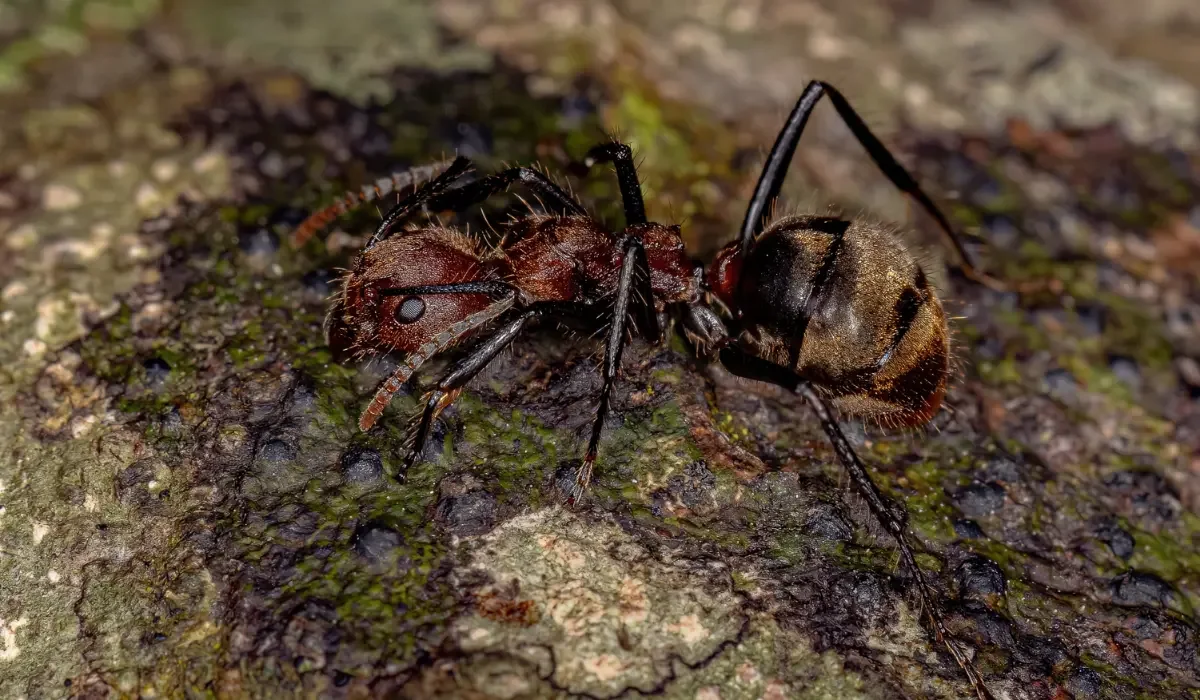
True to their name, odorous house ants emit a rotten coconut smell when crushed. They often nest in wall voids and follow long, winding trails along baseboards or countertops. They’re particularly persistent and difficult to treat without professional help.
Pavement Ants
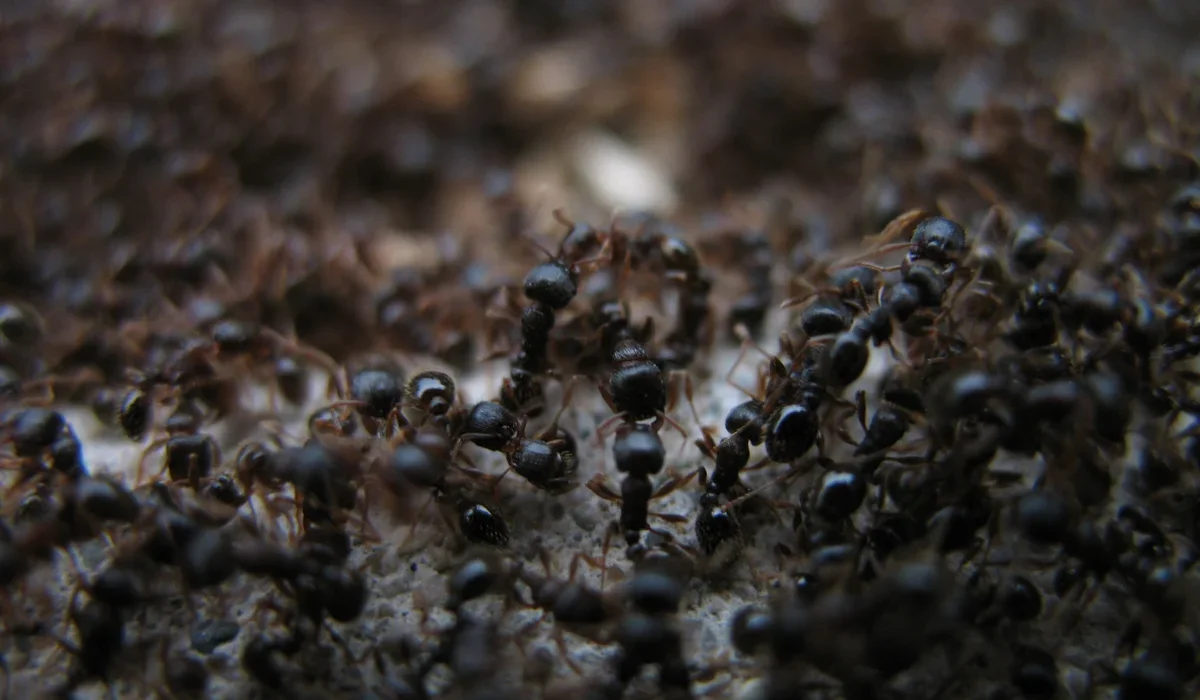
These ants nest under concrete slabs, sidewalks, and driveways. They enter homes through foundation cracks and are drawn to sweet or greasy foods. You’ll often find them near your dishwasher or trash can.
Acrobat Ants
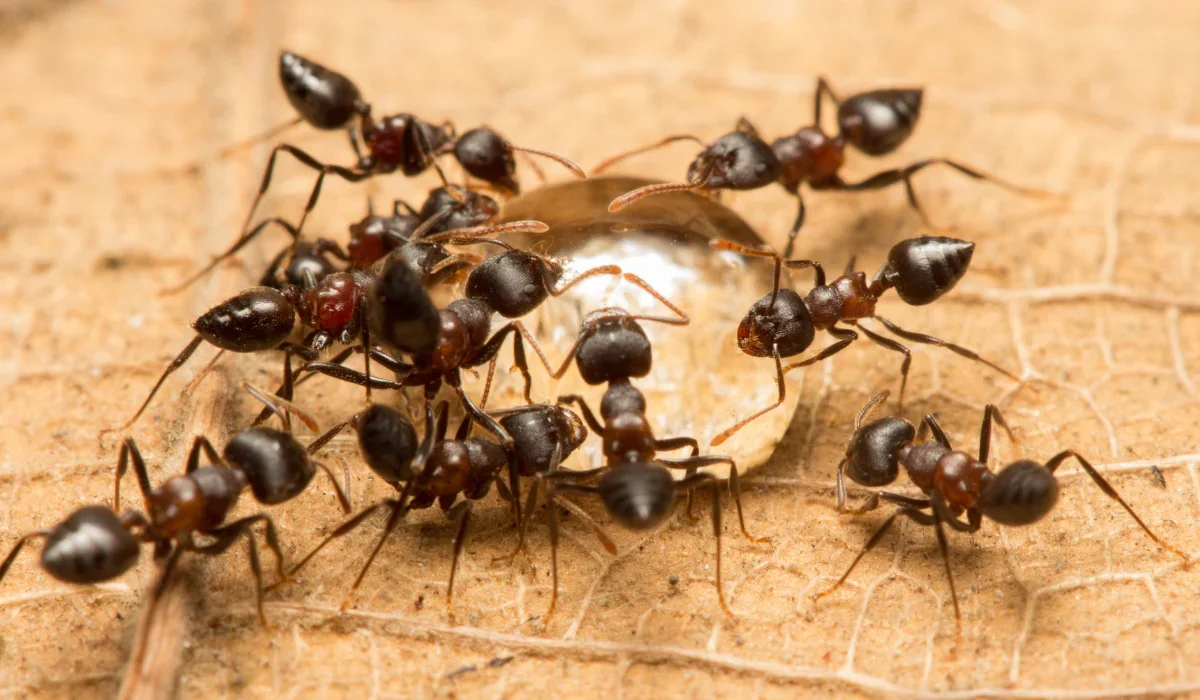
These ants raise their abdomens over their heads when disturbed. Acrobat ants often nest in damp wood, so their presence may point to moisture issues in crawlspaces or near leaky plumbing.
Carpenter Ants
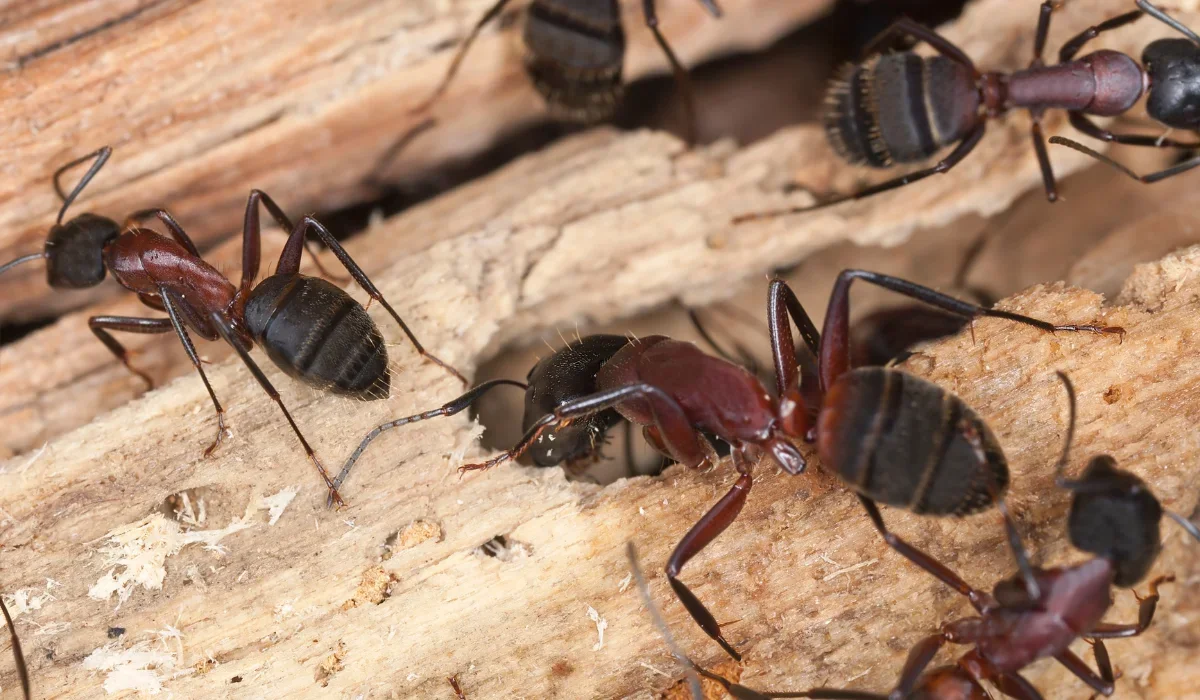
These large ants don’t eat wood but tunnel through it, which can cause structural damage over time. If you find sawdust-like debris near baseboards or window sills, you might be dealing with carpenter ants.
Pharaoh Ants
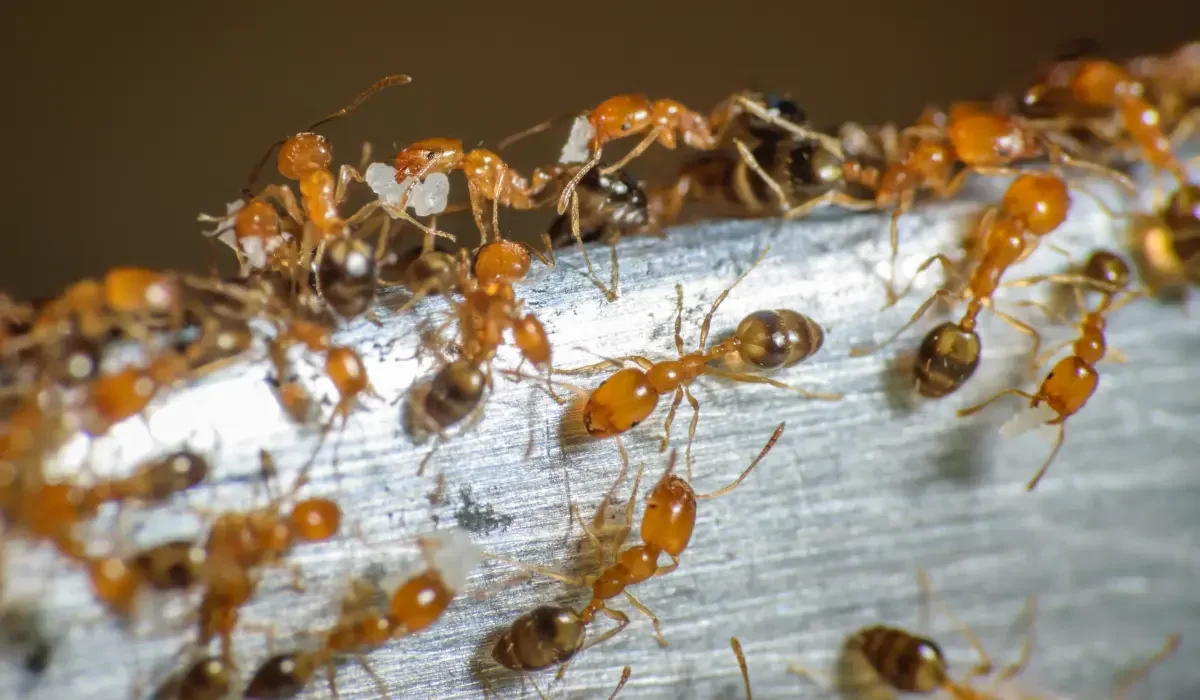
Tiny and yellowish, these ants are tough to eliminate. They split their colonies when threatened, making over-the-counter treatments ineffective, or worse, causing new colonies to form.
Why DIY Ant Control Often Fails
Effective ant control goes beyond killing the ants you can see. It’s about locating and treating the colony. Over-the-counter sprays may scatter the ants, causing them to form satellite nests. Homemade remedies like vinegar and baking soda can temporarily disrupt trails, but they don’t eliminate the root problem.
If you’ve sealed cracks and cleaned up every crumb, but ants still return, it’s time to look at the bigger picture. That’s when you need to call professional pest control services.
What a Professional Pest Control Company Does Differently
Professional ant control targets the entire colony, not just the foragers you see in your kitchen.
At Miller Pest & Termite, we begin with a thorough inspection of your home, identifying potential entry points, nesting sites, and signs of ant activity. Our licensed technicians know what to look for and what species they’re dealing with, which is key to effective treatment.
We use strategic baits for large colonies of field ants and treatments designed to be carried back to the nest, eliminating the queen and the entire colony. This is especially important for ants like pharaoh ants and carpenter ants, which can cause long-term issues if left untreated.
Preventing Future Infestations
Once your home is ant-free, maintaining that status is a matter of good habits and regular preventive maintenance.
Seal Off Entry Points
Use caulk to close up small cracks in baseboards, around windows, and near plumbing lines. Install weather stripping where needed and inspect crawlspaces and attics seasonally.
Store Food Properly
Keep dry goods in airtight containers, especially sugar, flour, and cereal. Wipe down countertops after cooking, and don’t leave pet food out overnight.
Eliminate Moisture
Fix leaky faucets, clean up spills promptly, and use dehumidifiers in basements. Many ant species are drawn to water as much as they are to food.
Regular Monitoring
Keep an eye out for new ant activity, even after treatment has been applied. Look near baseboards, trash bins, and under sinks, places that often go unnoticed.
When to Call a Professional
If you’ve tried everything and ants keep returning, the issue likely goes deeper than surface-level attractants. Multiple colonies, inaccessible nests, or structural vulnerabilities can make DIY ant control a never-ending task.
Whether you’re in Kansas City, Omaha, or Des Moines, Miller Pest & Termite can help you get and stay ant-free. Please give us a call, and we will be happy to answer your queries. We understand the local ant species and their behavior in Missouri homes.
FAQs
Why do ants keep coming back after I spray them?
Most sprays only kill the ants you see. Unless you eliminate the colony and clean scent trails, new ants will follow the same path back into your home.
Can ants cause structural damage?
Carpenter ants can. While they don’t eat wood like termites, they excavate it to build tunnels. Over time, this can weaken wood around windows, doors, and in wall framing.
Are ant baits effective for long-term control?
Yes, when appropriately used, ant baits target the entire colony, including the queen. However, different ant species prefer different baits, so accurate identification is crucial for success.
Get Help Now!


